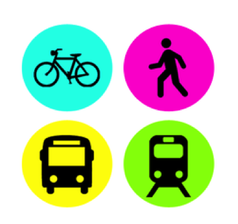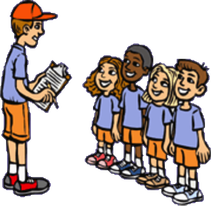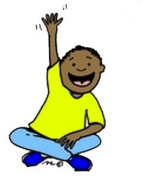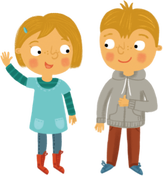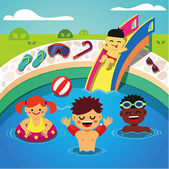|
Nili Geldwert, M.A. CCC-SLP and Julie Pike, M.A., CCC-SLP Camp is right around the corner, and we often know that there could be a lot of anxiety built around going somewhere new for children with social communication challenges. We thought it would be helpful to provide a model of a social story(TM) and some guidelines to help you write one. A social story is a researched based tool that was created by Carol Grey. It could be used for children of all ages with varying language abilities. It provides general information as well as the social expectations of a new experience. Below is a sample of a generic social story that you could adapt to your child’s needs. We are providing the parent friendly version of the components used in a social story. Our pseudo child for this story is a 6 year old who attends an ICT classroom in a public school. He will be attending 92nd Street Y this summer for the first time. We used many clip art photos, but it is best to try to use real images. We want to emphasize that the goal is not to change a child’s behavior, but to provide them with the tools to understand a new, perhaps socially confusing experience. General Guidelines
Sample Social Story: Summer Camp at 92nd Street Y Children go to camp during the summer months. They go to play sports, participate in arts and crafts activities and meet new friends. This summer you will be going to camp at 92nd Street Y. You will be attending from June 26th to July 27th. The camp day starts at 8:30 and ends at 3:00pm. Mom or dad will drop you off and pick you up at the end of the day. Some children get to camp by taking a bus, subway, bike or walking. You will be walking and sometimes you will take a bus if the weather is raining or if we are running late. When you get to camp your two counselors, Michelle and Alex, will greet you. You will wait with them in the lobby until the other campers arrive. Everyday your counselors will tell you the schedule for that day. Every day you will swim, do arts and crafts and eat lunch. Some days you will play sports like soccer and kickball. ,Some activities will be new for you. Your counselors will explain any unfamiliar sports or activities. If you are still confused, use your words in a calm way to ask for additional information. It is sometimes helpful to watch a new activity before you participate. Some of the activities might not be your favorite. Try to remember that each one lasts about 30 minutes. After you have tried to participate and you still do not like it, you could use your words and calmly ask to sit and watch. Sometimes changes happen to the schedule. This could make some campers uncomfortable or frustrated. If this happens, you could take a few deep breaths or ask to take a break. You could also ask the counselor if she knows why the change happened. She will sometimes give you an answer and sometimes she won’t know why. You could remember that, “changes happen just like that, poof”. At camp you will meet new friends. It is helpful to find out the other children’s names. You could also ask them how old they are and where they go to school. The kids will want to learn about you too. At the start of camp, you might play getting to know you games and you might find people who have similar interests as you. The first week will be filled with new experiences and might make you feel nervous. It is okay to feel this way. Lots of kids will have the same feelings. Remember that you could use your words to ask for help. You could also ask to take a break in a quiet area. You could always talk to mom and dad when you come home from your camp day. As you continue to go to camp more, you will become more comfortable with the schedule, the counselors and the other campers. Other posts... April 2018 |
Archives
December 2018
Categories |


